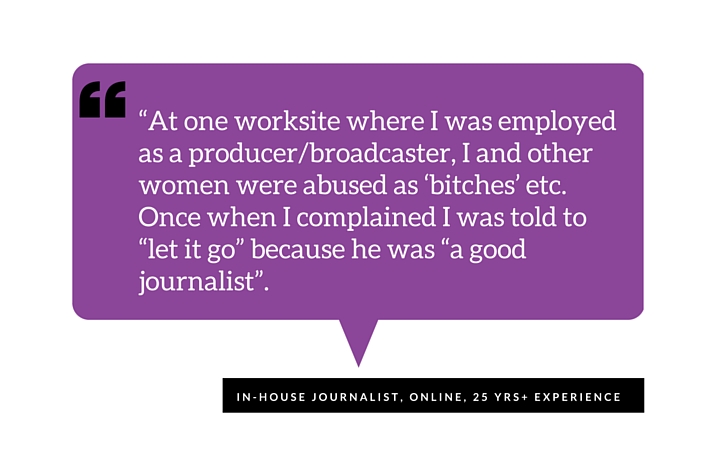Sexism in the media raises its ugly head

A new debate about sexism and misogyny in Australia’s media has been sparked by the controversy over offensive comments made by broadcaster Eddie McGuire about one of Australia’s leading football journalists.
McGuire initially attempted to brush off as a joke the comments about Caroline Wilson, chief football writer at The Age.
But he was forced to apologise, as have been his fellow commentators who were on air with him on Melbourne’s Triple M at the time.
For women working in Australia’s media, sexist and misogninistic comments, even if intended as a joke, are all too common.
This year’s ‘Mates Over Merit’ report from a survey commissioned by MEAA’s Women In Media initiative of more than 1000 media workers found an overwhelming sense that the media was still a “blokes world”, where casual sexism and discrimination was rife.
Forty-eight per cent of women said they had experienced intimidation, abuse or sexual harassment in their workplace, and 41% said they’d been harassed, bullied or trolled on social media.
The survey also found that while most media companies have policies to deal with sex discrimination, only 11% of survey respondents rated them “very effective”, and only one in three women felt confident to speak up about discrimination.
In the wake of the McGuire comments, MEAA has called on all media organisations to redouble efforts to educate about and stamp out sexism and misogyny in their workplaces.
MEAA director of Media, Katelin McInerney, said when one of Australia’s most decorated journalists could be the subject of jokes about drowning her in an ice bucket, it highlighted a culture where women in the media still struggled to be treated with respect at work.
“These comments should never have been made, even as a joke,” McInerney said.
“These kinds of remarks are not only hurtful, but they reinforce the need for concerted efforts to improve respect and treatment of women in the media.
“What makes the comments even worse is they also made light of violence against women.
“What kind of message does this send to young women wanting to make a career in journalism or broadcasting, particularly sports journalism?
“It demonstrates once again that there is still a culture of casual sexism in newsrooms and broadcast studios around Australia.”
Women In Media also issued a carefully worded statement on the issue.
“We look to leadership from prominent Australian men to create a climate in which respect for women is enhanced, not undermined,” said national patron Caroline Jones and national convenor Tracey Spicer.
“And we know they’re smart enough to do it without losing a sense of humour, that we all can enjoy.”